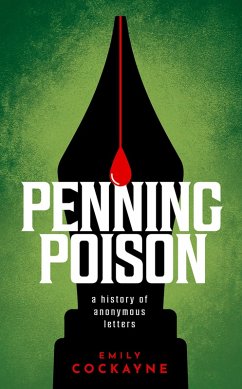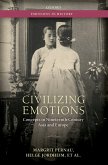Accusatory, libellous, or just bizarre, Penning Poison unveils the history of anonymous letter-writing. 'er at number 14 is dirty Receiving an unexpected and unsigned note is a disconcerting experience. In Penning Poison, Emily Cockayne traces the stories of such letters to all corners of English society over the period 1760-1939. She uncovers scandal, deception, class enmity, personal tragedy, and great loneliness. Some messages were accusatory, some libellous, others bizarre. Technology, new postal networks, forensic techniques, and the emergence of professional police all influence the phenomenon of poison letter campaigns. This book puts the letters back into their local and psychology context, extending the work of detectives, to discover who may have written them and why. Emily Cockayne explores the reasons and motivations for the creation and delivery of these missives and the effect on recipients - with some blas?, others driven to madness. Small communities hit by letter campaigns became places of suspicion and paranoia. By examining the ways in which these letters spread anxiety in the past Penning Poison grapples with the question of how nasty messages can turn into an epidemic. The book recovers many lost stories about how we used to write to one another, finding that perhaps the anxieties of our internet age are not as new as we think.
Dieser Download kann aus rechtlichen Gründen nur mit Rechnungsadresse in A, B, BG, CY, CZ, D, DK, EW, E, FIN, F, GR, HR, H, IRL, I, LT, L, LR, M, NL, PL, P, R, S, SLO, SK ausgeliefert werden.









